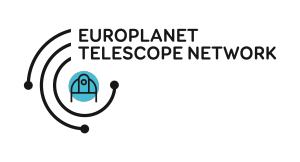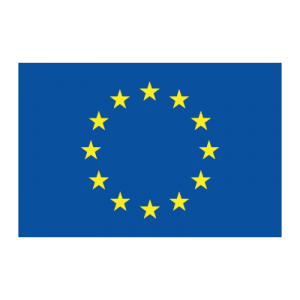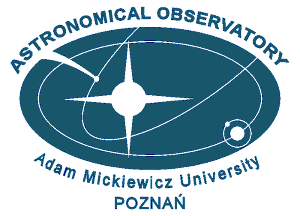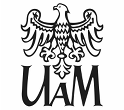Astronomical Observatory Institute in the „EUROPLANET 2024 Research Infrastructure” project financed within the H2020 programme
Astronomical Observatory Institute, together with 52 other leading research and  industrial partners, received funding for a four year project devoted to the creation of the interdisciplinary platform for planetary systems studies. Research will be carried out within the Horizon 2020 programme. by scientists and engineers from 26 countries. The total budget of the project amounts to 9.5 mln Euro (AMU will receive about 100 thousands Euro).
industrial partners, received funding for a four year project devoted to the creation of the interdisciplinary platform for planetary systems studies. Research will be carried out within the Horizon 2020 programme. by scientists and engineers from 26 countries. The total budget of the project amounts to 9.5 mln Euro (AMU will receive about 100 thousands Euro).
Studies of the planetary systems, both our own, which includes the Earth and the extrasolar ones, is a major challenge for mankind. It deserves an advanced research workshop combining the ground-based and space telescopes, supercomputers modeling the creation of the planetary systems, and also the space probes which can study directly the objects revolving around the Sun. The development of scientific methods resulted in the situation, in which planetary science in based on astronomy, physics, chemistry, geology, robotics, and advanced computer technologies. Because of that a creation of a uniform infrastructure, allowing for multidisciplinary, international collaboration, is needed. This goal is the main objective of the EUROPLANET 2024 RI project.
Within the project, the Astronomical Observatory Institute will be responsible for the creation of the web service providing the system of alerts about unexpected events which should be observed at a given time, and/or from a specific location on the Earth. An example of such events is stellar occultations by asteroids, which allow the determination of diameters of the latter with small telescopes which are located in the narrow path of visibility. A key element in this method is the creation of the extended network of telescopes covering the whole Earth (they can be instruments belonging to the advanced amateur astronomers), and coordination of joint observations. Our Observatory
of the web service providing the system of alerts about unexpected events which should be observed at a given time, and/or from a specific location on the Earth. An example of such events is stellar occultations by asteroids, which allow the determination of diameters of the latter with small telescopes which are located in the narrow path of visibility. A key element in this method is the creation of the extended network of telescopes covering the whole Earth (they can be instruments belonging to the advanced amateur astronomers), and coordination of joint observations. Our Observatory  has already some experience in offering this type of web services – for several years a similar service called GaiaGOSA (www.gaiagosa.eu) is available at one of our servers. It has been developed within a contract from the European Space Agency.
has already some experience in offering this type of web services – for several years a similar service called GaiaGOSA (www.gaiagosa.eu) is available at one of our servers. It has been developed within a contract from the European Space Agency.
This project has received funding from the European Union’s Horizon 2020 research and innovation program under grant agreement No 871149.

